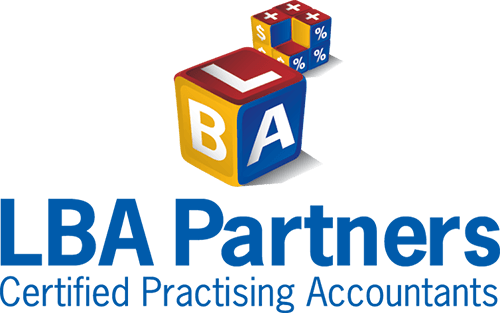P r a c t i c e U p d a t e
February 2012
New reforms announced
The Government has released its 2011/12 Mid-Year Economic and Fiscal Outlook, which forecasts substantial downgrades to revenue due to "a significant deterioration in global conditions."
As a result, the Government "has had to find further savings in the budget", including the following measures that will apply from 1 July 2012:
- The Government will introduce reforms to stop individuals from being able to exploit the tax exemption for living-away-from-home allowances and benefits;
- The Government will further restrict the Dependent Spouse Tax Offset (DSTO) to those with spouses born before 1 July 1952 (this extends the 2011/12 Budget measure, to phase-out the DSTO for most taxpayers with a dependent spouse born on or after 1 July 1971);
- The Government will reduce the matching rate and maximum payment of the voluntary superannuation co-contribution from 1 July 2012, when the new low income superannuation contribution commences; and
- The drawdown relief for account-based, allocated and market linked pensions (i.e., a 25% reduction in the minimum payment amounts for these products), will be extended to the 2012/13 year (the Government had indicated previously the minimum payment amounts would return to normal in 2012/13).
Deferral of measures and/or indexation
The Government will also defer certain previously announced tax reforms by one year, including:
- The start date of the standard deduction for work related expenses will be deferred until 1 July 2013;
- The start date of the 50% tax discount for interest income will be deferred until 1 July 2013;
- The Government will pause the indexation of the superannuation concessional contributions caps for one year in 2013/14.
ATO crackdown on PSI and ABNs
The ATO has advised that it will effectively be cracking down on taxpayers who claim to be independent contractors, by reviewing:
- taxpayers who have reported personal services income (PSI) and who may have incorrectly self-assessed themselves as conducting a personal services business (PSB); and
- data held in the Australian Business Register (ABR), and cancelling any Australian Business Numbers (ABNs) where records indicate that taxpayers are not carrying on an enterprise.
They will be focusing on individuals (sole traders) as they comprise almost 50% of the records on the register.
Editor: If you receive a letter stating that your ABN has been cancelled, contact us as soon as possible. We may be able to object against the decision to cancel the ABN and have your registration reinstated.
Alternatively, if you have not yet received a letter but are either not required to hold an ABN, or have stopped operating the relevant business, we could pre-empt the ATO by cancelling the ABN before they do.
In relation to the ATO's crackdown on PSI, the main taxpayers they are concerned about are contractors who receive PSI (either directly or through an entity) but who are effectively employees. This issue is important because deductions and reporting obligations may be affected.
Tax incentive to encourage immunisation
As part of a number of incentives to increase the immunisation rates of Australian children over time, the Government will require that families have their children fully immunised from 1 July 2012 to receive the $726 Family Tax Benefit Part A end-of-year supplement (per child).
The supplement will now only be paid once a child is fully immunised at a new immunisation check point at one year of age, along with the existing check points at two and five years of age.
The new arrangements will replace the existing Maternity Immunisation Allowance, but existing exemptions will continue to be available for people who register as conscientious objectors to immunisation
SMSF compliance focus for trustees
The ATO has advised that it has three major focus areas for its SMSF compliance program:
- non or late lodgments (not lodging can result in the fund being made non-complying or the trustees being prosecuted);
- compliance breaches without an auditor contravention report (ACR); and
- unrectified ACRs (i.e., where the auditor reports a breach of the superannuation law that the trustees fail to rectify), and SMSF trustees making the same breaches the ATO has previously addressed with them.
In addition, the ATO is focusing on:
- related-party investments including lending to members;
- breaches of the 5% in-house asset limit;
- exempt current pension income and non-arm's length income;
- ACRs lodged for SMSFs that are under 15 months old; and
- funds breaching the borrowing restrictions.
ATO Data Matching Programs
The ATO has released details of the following data matching programs:
- Dependent Spouse Tax Offset Data Matching Project (collecting names, addresses and other related information of approximately 1.3 million taxpayers from Centrelink);
- Legal Profession Data Matching Project;
- Department of Immigration and Citizenship (DIAC)/ATO Temporary Visa Data Matching Project;
- WorkCover Data Matching Project (collecting names and addresses of entities from the WorkCover Authorities for each of the States and Territories for the 2010 financial year);
- Pleasurecraft Data Matching Project (collecting about 110,000 insurance records from marine insurance companies);
- Motor Vehicle Data Matching Program (collecting details from motor vehicle registries of individuals or businesses that have purchased or acquired a vehicle valued at $10,000 or greater in the 2011 financial year); and
- Credit and Debit Card Data Matching Program (collecting data relating to credit and debit card sales of approximately 400,000 entities within various industries for the 2011 financial year from banks and credit card companies).
The acquired data will be electronically matched with certain sections of ATO data holdings to identify non compliance with registration, reporting, lodgment and payment obligations under taxation law, and, in particular, to identify those participating in the cash economy and those who are potentially skimming some or all of their cash takings or in other ways not reporting all of their income.
Please Note: Many of the comments in this publication are general in nature and anyone intending to apply the information to practical circumstances should seek professional advice to independently verify their interpretation and the information's applicability to their particular circumstances.
Management Consulting
We have the know-how and experience to offer advice that helps you run your business more effectively.
Self-Managed Superannuation Funds
At LBA Partners we provide the professional advice you need to manage your own fund and greatly simplify the process for you.



